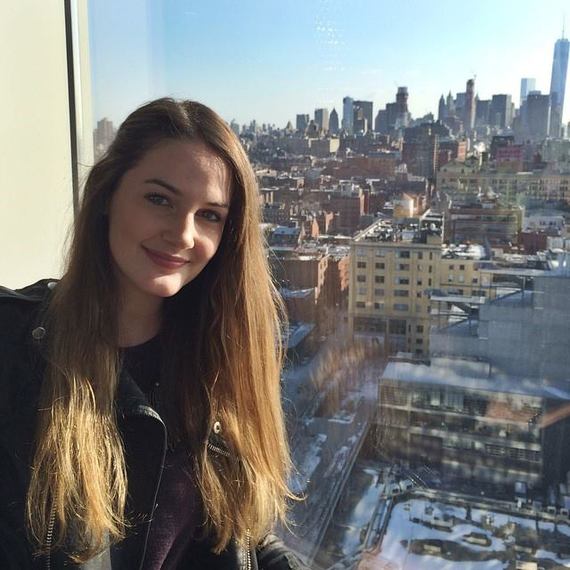I have a confession to make: I lead an egregiously irresponsible life. And I'm not talking about my inability to show up for work on time or my borderline inappropriate twist on "business casual."
Despite graduating into a subpar job market with a degree more aptly titled "Help Me I'm Poor," I moved to New York City. A concrete jungle overpopulated with bodies, culture and big dreams was my twisted idea of nirvana. Enchanted by this beaming metropolis of excitement and success, I literally and figuratively bought into a manic lifestyle of endless struggle countered by glimmering hope (and one-dollar slices of thin crust pizza).
Over 50 percent of my monthly paycheck is spent on rent. I frequently skip lunch in lieu of the cheapest possible happy hour drinks. I've yet to tap into Manhattan's esteemed restaurant scene, but am well-versed in thrift shops, flea markets and dive bars. The idea of saving for retirement is laughable and I uncomfortably live paycheck to paycheck in a city that's both my salvation and my adversary.
Most, including my father, would call this decision financially irresponsible, unsustainable, naïve and romanticized. And I would have to agree with all of them.
But, I wasn't lured to this lifestyle by the promise of financial stability and the chance to open my first 401(k). My motivation lies in the rush of a new experience, the thrill of living in fear and flying and the chance to lose and find myself in a city bent on chaos, freedom and hard work. In essence, I consciously chose instability.
In this respect, I am very much a typical millennial -- vaguely entitled, intrinsically motivated, and in effect, financially discontent.
This nontraditional financial behavior puzzles even the most esteemed economists. Put simply, we value experiences over ownership and stability.
This is evidenced in our purchasing decisions, or lack thereof. Young Americans aged 21 to 34 are less likely to buy cars, purchase homes or get married -- all traditional American milestones that once signaled success. Even the way we listen to music, watch movies and build our wardrobe is based on access and experience rather than ownership, aided by popular services like Spotify, Netflix and Rent the Runway.
Today, young adults view traveling abroad and attending experience-based events like music festivals as the marks of a fruitful life. Luckily for event planners and urban dwellings, you just can't put a price on life experience, so long as that experience validates an intrinsic desire.
In essence, we're reinvented the traditional American ideals. But when did we become such contrarians?
Money Can't Buy Happiness
Along with desperation and sadness, the Great Recession showed us just how fleeting financial stability is. Whether through underemployment, a laid-off parent, or a family move to a more affordable community, we all experienced the residual effects of the financial crisis in one way or another.
This loss taught us an important lesson at the tender age of 18: There's more to life than money. In effect, we place less importance on money because we understand the fragility of it; we've experienced it for ourselves.
We instead put stock in what's tangible and make financial decisions with our hearts. Oftentimes our hearts lead us to Coachella or a career in screenwriting instead of a two-bedroom house with a 2015 Bentley in the driveway.
Pics or it Didn't Happen
The second-most impactful event of our adolescence was the dissemination of the Internet. Besides aiding in the procrastination that marked our high school and college years, social media became our go-to method for sharing, interacting and connecting with our peers.
Today, many of us spend money on the things we deem worthy of telling our friends about (or sharing on our various social networks). You could say that the joy of having something is no longer in owning it, but in sharing it. What we buy is almost an extension of who we are, which is why we're willing to invest in the things that complement our personalities and align us with a certain subculture.
Our distinctive value system is one of the many qualities that makes our generation unique. Despite less than favorable economic repercussions, I'm in favor of challenging our cultural norms in the name of societal growth.
This post originally appeared on GenFKD.com in June 2015.
